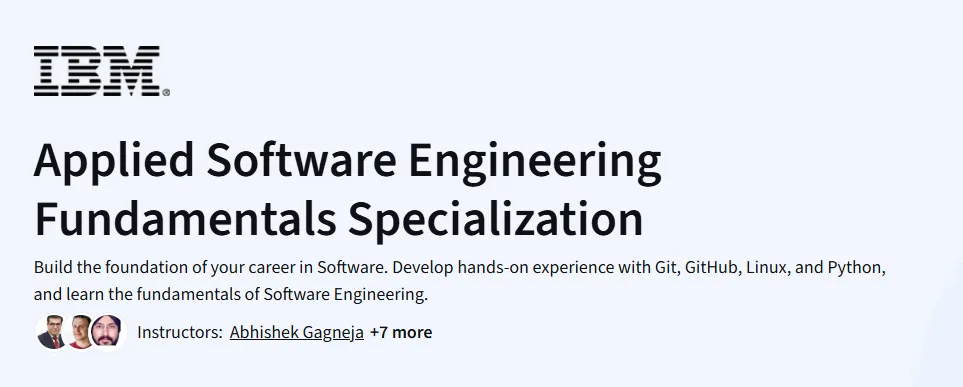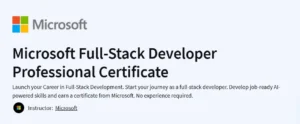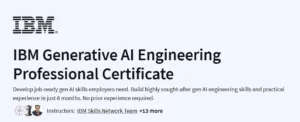What will you learn in Applied Software Engineering Fundamentals Specialization Course
Core principles of software engineering and object-oriented design.
How to model systems using UML and implement them using Java.
Best practices for software testing, debugging, and maintenance.
Skills to develop modular, maintainable, and scalable software.
Program Overview
1. Introduction to Object-Oriented Programming with Java
⏱️ 2 weeks
Topics: Java basics, OOP concepts (classes, objects, inheritance).
Hands-on: Writing simple Java programs and using IntelliJ.
2. Software Design and Architecture
⏱️ 3 weeks
Topics: UML diagrams, design patterns, SOLID principles.
Hands-on: Creating class and sequence diagrams; applying design patterns.
3. Testing and Debugging
⏱️ 2 weeks
Topics: Unit testing, assertions, debugging techniques.
Hands-on: Writing JUnit test cases and debugging real code.
4. Software Development Capstone Project
⏱️ 2 weeks
Topics: Application of learned skills in a project scenario.
Hands-on: Build a functional Java application from design to testing.
Get certificate
Job Outlook
High Demand: Software engineering is one of the top in-demand careers globally.
Career Opportunities: Software Engineer, Backend Developer, QA Engineer, Java Developer.
Salary Potential: $80,000–$140,000/year depending on experience and region.
Freelance Scope: High scope for freelance development and testing projects.
Specification: Applied Software Engineering Fundamentals Specialization
|
FAQs
- No advanced coding knowledge is required.
- Basic logical thinking or prior exposure to programming helps.
- The course starts with Java fundamentals.
- Step-by-step projects gradually increase difficulty.
- Perfect for beginners and career switchers.
- Goes beyond syntax to focus on software engineering principles.
- Includes UML modeling and design patterns.
- Covers testing, debugging, and maintainability.
- Blends theory with practical software projects.
- Prepares you for real-world development environments.
- Yes, it teaches job-relevant backend and software skills.
- Capstone project simulates real-world applications.
- Builds portfolio-ready Java programs.
- Covers object-oriented design, a key interview focus.
- Provides practical foundation for internships or junior roles.
- Java Development Kit (JDK) installation is required.
- IntelliJ IDEA or Eclipse is used for coding.
- UML diagrams can be built with free tools like StarUML.
- JUnit is used for testing exercises.
- All tools have free versions suitable for students.
- Yes, it sets a strong foundation in OOP and Java.
- Builds skills necessary for advanced frameworks like Spring.
- Introduces design thinking for scalable software.
- Encourages good coding practices early on.
- Serves as a stepping stone for CS or software engineering degrees.





